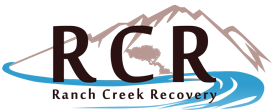For many people who have braved the process of rehab and begun the long road to recovery, creating and fostering a strong sober support network is essential to avoiding unforeseen relapse incidents.
While your friends and loved ones can be some of the most important social connections you maintain during your recovery, avoiding people who enable your addictive impulses is most often necessary to stay focused, accountable and successful in recovery.
- It’s important to note that most people who find themselves functioning as an enabler may actually be trying to help in their own way.
Are you thinking about who has enabled your addiction? Are you wondering how to set boundaries with those individuals?
It’s important for you to understand exactly what an enabler is. Then you need to know how you can set appropriate boundaries with them, or keep your distance throughout the course of recovery, so the progress you make is not undone.
What Is an Enabler? How Can Enablers Fuel an Addiction?
By engaging in behaviors they mistakenly believe will help in the long run, an enabler actually works to make your drug use problems and addictions worse.
That’s because enabling is detrimental to your recovery process — encouraging your addictive impulses or making excuses for the harmful decisions you may be making throughout your addictive behaviors.
It’s not uncommon for an enabler to deny all the facts right in front of them to hold onto their loved one and protect them in their own toxic way. They support the notion that denial allows everything to stay the same; in fact, they’re putting their loved one in further danger by ignoring the addictive behaviors that have destroyed their life to this point.1
Setting Boundaries with Enablers
So, once you’ve made the effort to gain personal progress in your recovery journey, what are the best methods to help you set appropriate boundaries with enablers in your life?
There is no perfect answer to this question. However, considering your specific situation and implementing the following techniques can help you create proper boundaries and avoid interactions with individuals who negatively impact your recovery efforts.
Now that You’re in Recovery, Here’s How to Set Boundaries in Relationships
- Don’t be afraid to say NO
Finding ways to tell your friends or loved ones no can be difficult, especially when you feel loyal to them for supporting you in the past. However, part of defining your boundaries is recognizing the progress you’ve made in your recovery and the desire to interact with people who hold you accountable to your new standards of behavior.2 As you learn to do this, saying no will become easier, and it will become obvious which people you need to say no to.
- Remember to protect your physical boundaries
Physical boundaries are the boundaries you establish to help protect your personal space, privacy and safety. Everyone’s physical boundaries will vary based on personal preferences, traumas and past experiences. But remember that setting physical boundaries is important. Doing so will give you safe places to go to when people who previously enabled your addictive behaviors try to become part of your present life without being invited in.2
- Avoid toxic relationships at all costs
A toxic relationships is any relationship that causes you emotional or physical harm. As you achieve sobriety, you may start to see where past relationships were toxic that previously seemed supportive. When this happens, you may need to cut all ties with some individuals from your past.3
- Focus on communicating effectively with loved ones
When you begin defining your boundaries, you’ll learn to recognize what you want and need in a relationship – and how to communicate those preferences effectively. You’ll also learn how to communicate without blaming or shaming people who enabled your addiction in the past, which works to create a healthier social support network around yourself.4
- Take personal responsibility for your actions
During the course of rehabilitation, you learn how to take ownership of your behaviors. After rehab, you continue this process by living a life of integrity and character. By learning how to respect and love yourself, you also learn how to accept the consequences of your behaviors and develop a healthy structure and routine that guides the way you live your life.4
What if You Relapse?
If you find yourself in a situation where you feel you might relapse, or are interacting with a loved one who isn’t respecting your boundaries, it’s essential to begin discussing your concerns with your sober supports and clinical treatment provider.
Attaining a state of sobriety is no small task. Once you’ve achieved it, you have to fight twice as hard to keep unhealthy influences out of your life. The benefit of building a healthy sober support network is that they can provide guidance and advice when enablers come back into your life.
While their intentions may seem pure, the negative impact enablers can have on your recovery progress is all too real, and needs to be removed as quickly as possible.
Holistic Drug and Alcohol Addiction Treatment at Ranch Creek Recovery
If you’ve struggled with addiction in the past, always remind yourself of how strong you are and how far you’ve come.
If you find yourself in a situation where your substance of choice is creeping back into your life, you need to get back on track as soon as possible – and we’re here for you.
At Ranch Creek Recovery, we address addiction recovery and relapse prevention head on through our non-12-step, individualized, holistic addiction treatment programs.
Our team of treatment experts will work one-on-one with you to create a custom treatment and recovery plan that will help you feel confident and ready to reenter your sober life.
Have questions? We’re here to help in any way we can. Contact us.
CALL NOW: (877) 997-8931
Did you know we offer family therapy programs for addiction recovery?
We offer family therapy programs for addiction recovery. These programs can help family members who may be enablers and the person in recovery have clear communication and help set boundaries. Learn more.
Resources:
1Psychology Today. Are We Addicted to Being an Enabler? Accessed July 13, 2021. https://www.psychologytoday.com/us/blog/heartache-hope/201207/are-we-addicted-being-enabler.
2National Center for Biotechnology Information. Lines in the sand: Social representations of substance use boundaries in life narratives. Accessed July 13, 2021. https://www.ncbi.nlm.nih.gov/pmc/articles/PMC4009367/.
3Hazelden Betty Ford Foundation. Boundaries in Addiction Recovery. Accessed July 13, 2021. https://www.hazeldenbettyford.org/articles/boundaries-in-addiction-recovery.
4Positive Psychology. How to Set Healthy Boundaries: 10 Examples + PDF Worksheets. Accessed July 13, 2021. https://positivepsychology.com/great-self-care-setting-healthy-boundaries/.












